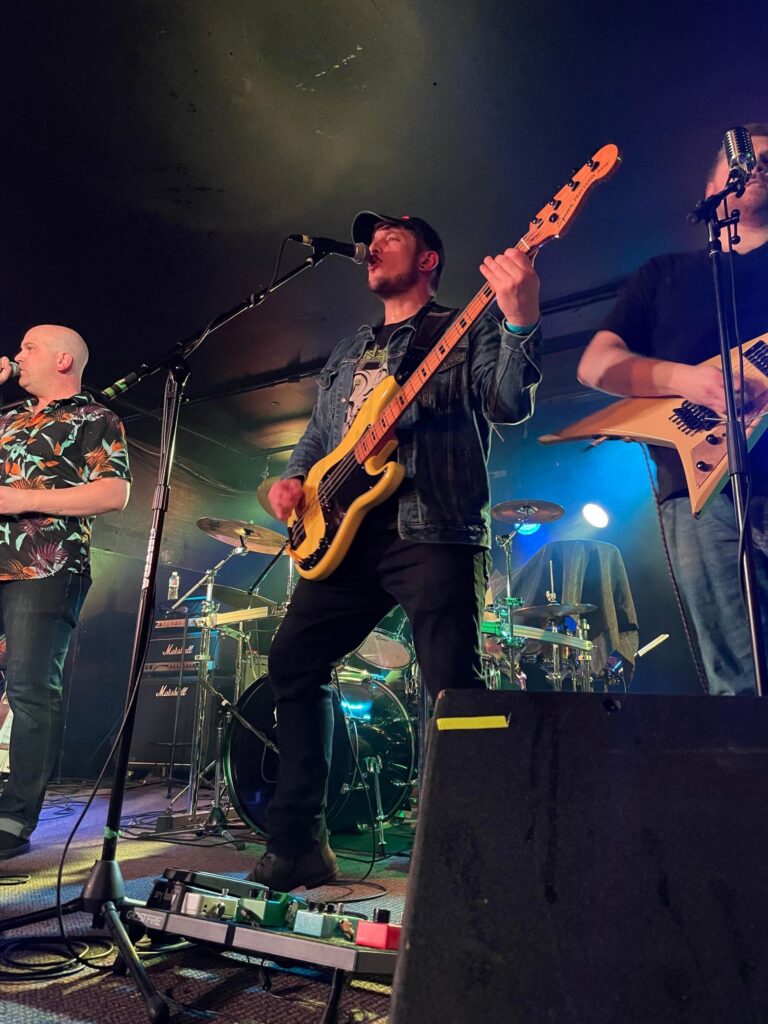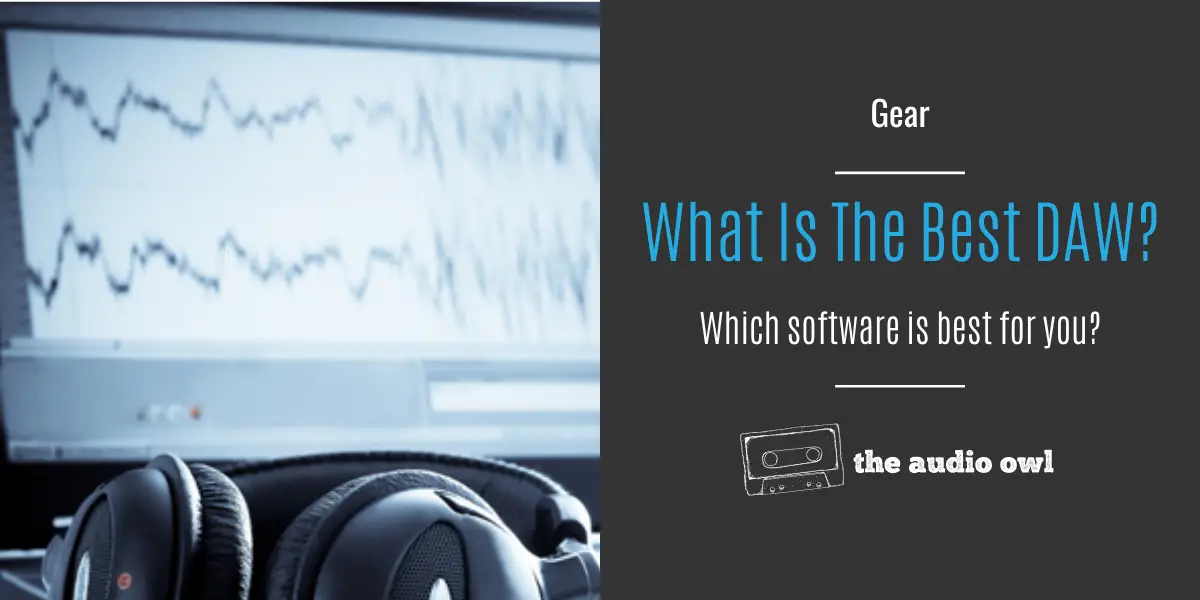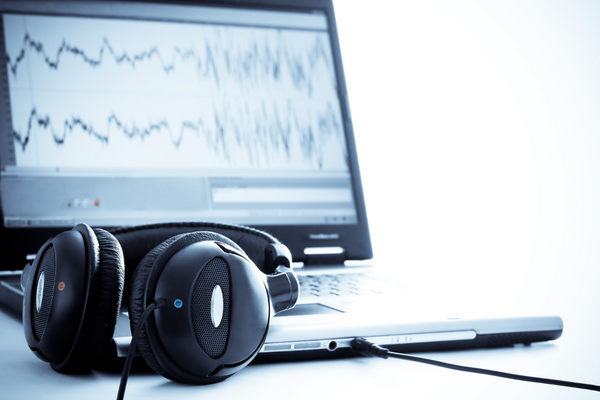There’s never been a better time to be a music producer. In the past, you’d need to go to an expensive recording studio if you wanted to make a serious recording. These days, you can have as much recording power as a professional studio from just your laptop.
With that said, the sheer number of options available makes it quite difficult for a beginner to get into digital audio creation. The music software you choose can have a dramatic impact on your workflow and the kind of music you can create. You need to take the time to pick the right software for you.
So what is the best music production software for your needs? This is a complicated question that we explore in detail in the article below.
What is a DAW?
A DAW or digital audio workstation is what you’ll use to write, record, and mix your music. All DAWs allow you to record real instruments, and they also let you operate virtual VST instruments.
While DAWs all have the same basic capabilities, the key differences come from the workflow. Some tasks are very easy in certain DAWs but more complicated in others. Ideally, you should pick a DAW that suits the kind of music you want to create.
Ableton Live
Ableton live is probably the most widely used audio workstation. It’s designed with electronic music producers in mind. This DAW allows for a fast and creative workflow. It’s suited to electronic music because you can quickly create various loops and start mixing and matching them.
This DAW is also a great choice because a lot of the online tutorials out there will use Ableton. A lot of MIDI hardware out there is also preprogrammed to work with Ableton right out of the box. If you produce electronic music, you can’t go wrong with this DAW.
Studio One
Studio One is another great DAW choice. It started off as a more traditional DAW, but the developers have included many new features throughout the years. Studio One is an excellent all-rounder. It can excel at recording both traditional bands and experimental electronic music.
The downside to Studio One is that the included virtual instruments are not as good as the competition. This might not be an issue if you plan to use your own VSTs.
Logic Pro
If you’re a Mac user, Logic Pro might be the DAW for you. Logic is known for having a great workflow, and it comes with a huge amount of great content for you to use in your productions.
Of course, the downside is that this DAW only works on Mac. If you rely on this DAW you’re essentially locking yourself into the Mac ecosystem. If you’re a Logic user and you ever wanted to switch to a Windows PC, you’d need to pick a new DAW.
Reaper 6
All of the DAWs listed here are fairly expensive if you want the fully featured versions. Reaper 6 is an exception. For 30 days you get access to a fully functional demo. After 30 days you’ll need to pay a license fee, but the fee is incredibly low compared to the competition.
Don’t let the price fool you. This is a fully featured DAW that has some very sophisticated audio and MIDI routing capabilities. The only downside is that Reaper does not come with many plugins and sounds bundled. If you choose Reaper, you may need to rely on 3rd party sound libraries such as our free samples.
FL Studio
Previously known as Fruity Loops, this is somewhat of a divisive DAW in the electronic music community. While this DAW offers amazing value for money and many great features for electronic music producers, it has quite a unique workflow.
Many producers out there love FL Studios’ unique features, and many people hate it. As a beginner, you may find it difficult to replicate tutorials for other DAWs, such as Ableton inside FL Studio.
Another reason to consider this DAW is that you’ll get a lifetime of free updates. Other DAWs, such as Studio One and Ableton, require you to spend more money on the big updates.
Maschine
This is a unique DAW in comparison to the others on this list because Maschine is both software and hardware. If you want to use this DAW, you’ll need to buy one of the Maschine boxes.
This DAW essentially emulates the hardware grooveboxes of previous decades such as the Akali MPC. If you’re someone who doesn’t like working with a mouse and keyboard, this could be the DAW for you. You can do pretty much every action from the hardware, so you can make an entire track without ever touching your laptop.
The significant disadvantage to this DAW is that it lacks many key features. For example, you couldn’t really use Maschine to record a live band. With that said, if you’re making certain genres like house or hip-hop, the limitations of Maschine can be an advantage because you can work incredibly quickly.
Some producers like to write their tracks in Maschine and then export the stems into another DAW such as Studio One to do their mixing and mastering.
So, What Is the Best Music Production Software?
So, what is the best music production software? As you can see from this article, there’s no simple answer. The quality of the most popular DAWs is so high that it’s all about personal choice.
There’s no doubt that you could use any of the DAWs on this list to create great music. One of the main things you need to consider before selecting a DAW is the kind of music you want to create.
Some DAWs are suited more for electronic music, some are more traditional recording workstations, and some are all-rounders. It makes a lot of sense to try out some demos to figure out which workflow will work best for you.
If you want to learn more about music production software and take your sounds to the next level, check out our website for some informative articles.
Author: Mike P
Hi! My name is Mike! I’ve been an apartment producer/musician for 10+ years. I’ve played in punk bands, released EDM tunes on Beatport and iTunes, and have a semi-successful stock music portfolio. Read more…



